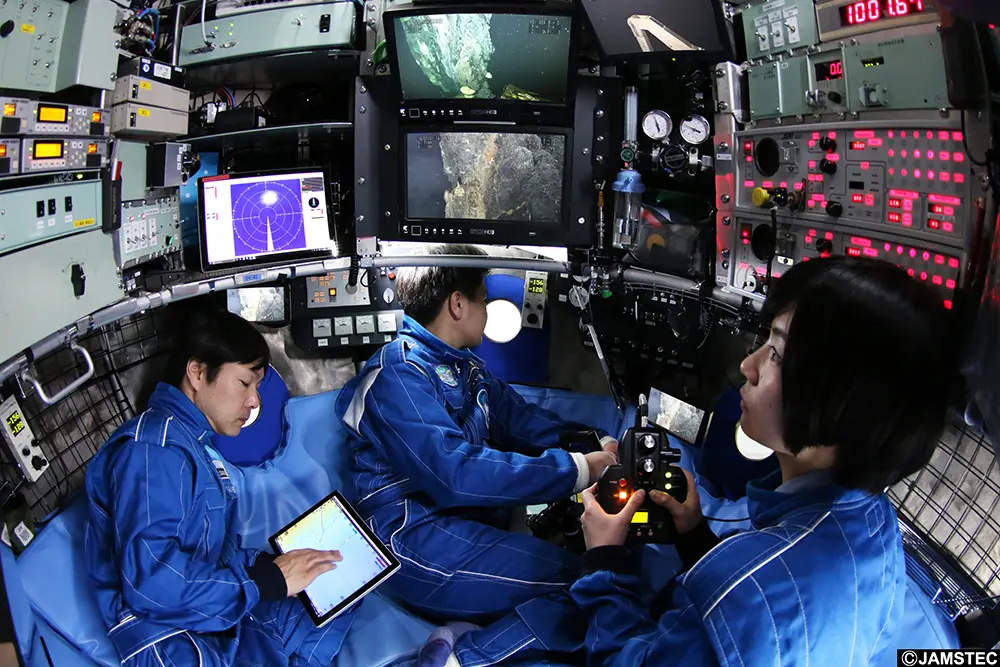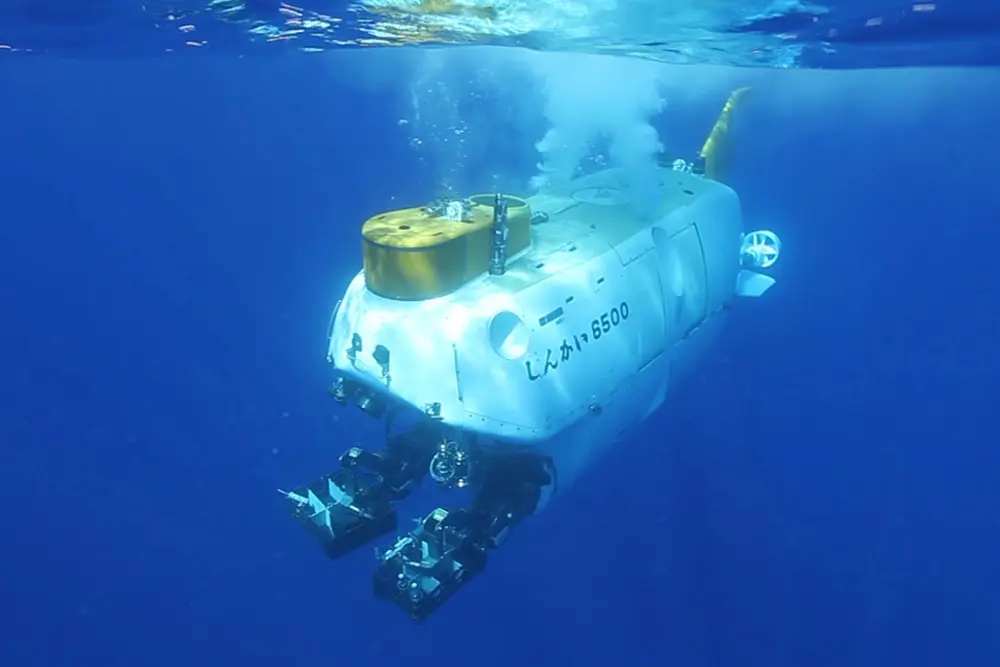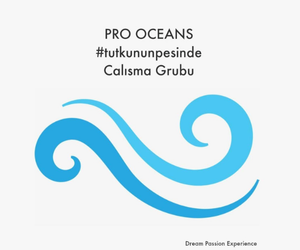The Nippon Foundation-Nekton Ocean Census has embarked on its first deep-sea expedition to Japan, during which it will partner with the Japan Agency for Marine-Earth Science and Technology (JAMSTEC).
The 20-day scientific voyage on board the Japanese research vessel Yokosuka will use JAMSTEC’s submersible Shinkai 6500 to visit some of the least explored deep-sea ecosystems.
Shinkai 6500 is one of the world’s deepest-diving human-occupied research submersibles, capable of reaching a depth of 6,500 metres, and has completed more than 1,800 dives since its launch in 1990.
‘We’re proud to deploy Shinkai 6500 on home ground in service of global science,’ said Dr Akinori Yabuki, Principal Investigator of the expedition at JAMSTEC.
‘Japan’s waters hold extraordinary biological diversity, and many areas remain virtually unexplored.’
The expedition will visit the Nankai Trough, which extends some 900 km (560 miles) off the southern coast of Japan’s main island, Honshu, and the Shichiyo Seamounts, a volcanic ridge extending approximately 1,500km (930 miles) into the Pacific Ocean.
‘This expedition represents more than a journey into the unknown; it signifies a convergence of knowledge, expertise, and a shared vision dedicated to advancing the discovery of marine biodiversity,’ said Dr Takeshi Kawano, Executive Director of JAMSTEC.
‘With JAMSTEC’s Shinkai 6500 at its core, this mission shows the transformative power of international collaboration in deep-sea research.
‘Together, we aim to deepen our understanding of life in the ocean’s most remote regions and to contribute meaningfully to the preservation of our planet’s biodiversity.’
Launched in 2023 by The Nippon Foundation and UK-based charity Nekton, the Ocean Census is a global alliance of scientific institutions aiming to accelerate species discovery and identify 100,000 new species by 2030 using AI-based tools to expedite the process of analysis and description.

The expedition’s international scientific team includes experts from JAMSTEC, the Ocean Census, Nagoya University, Hokkaido University, and the Australian National University.
The team plans to make 11 dives across the deep-sea trench and seamounts, aiming to document some of the species that inhabit the harsh environments of volcanic vents and methane seep communities.
‘This is about more than discovery. It’s about creating a new knowledge base for ocean stewardship, led by Japan and shared with the world,’ said Dr Michelle Taylor, co-lead of the expedition and Head of Science at the Ocean Census.
‘Thanks to JAMSTEC’s incredible legacy and infrastructure, and with the support of The Nippon Foundation, we expect to find species new to science.’
The Ocean Census has committed to making its expeditions and all the discoveries made during them open to the public, with all available through the Ocean Census Biodiversity Data Platform.
The post Ocean Census heads to deep-sea Japan appeared first on DIVE Magazine.






